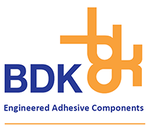The adoption of AI technology is now widespread across many industries, and healthcare is no exception. The use of AI in healthcare is something that will only continue to grow as the technology continues to progress.
Understanding the impact of AI and its potential is a subject that’s important for medical device developers, healthcare industry manufacturers, and procurement professionals. It’s essential to take a proactive approach to AI adoption as failure to do so could mean missed opportunities to capitalise on AI’s potential and could render existing products obsolete.
AI in the Healthcare Ecosystem
AI is already transforming the way that the healthcare system operates and is being used all around us. Common uses of AI technology that are already in place include:
- Detecting early signs of illness
- Interpreting scans
- Diagnosing medical conditions and injuries, e.g. fractures
- Patient monitoring
- Treatment planning
- Patient admin tasks
The uses of AI in healthcare are not slowing down; in fact, it’s predicted that generative AI use in the healthcare market will reach $16.82 billion (USD) by 2034.
AI’s Role in Medical Device Development
Already, AI plays a crucial role in the early stages of medical device development through virtual prototyping and predictive modelling to inform final designs and reduce the time taken to develop designs.
Innovative companies, such as BDK, that produce components used in wearable medical devices will play a central role in enabling advancements in AI technology within the healthcare sector.
In fact, we are currently involved in an EU funded research project for 3D robotic in-line fault/contamination detection on all sides of a product. The goal is to develop an AI system that is highly accurate in detecting defects in dressings such as wrinkles, misalignment, and contaminants, which are critical for product quality and patient safety.
Our future roadmap with AI includes:
- Evaluate Image-Based Technology Applicability: BDK will assess the viability of in-line automated inspection using AI-linked cameras capable of analysing the geometry and integrity of each dressing in real time.
- Investigate Supervised vs. Unsupervised ML Algorithms: We will explore different machine learning approaches, including supervised and unsupervised learning, to automatically detect abnormalities in the medical dressings during production.
- Create Dataset for Training & Validation: A robust dataset will be generated from the manufacturing lines, featuring different types of defects, which will be used to train and validate the machine learning models.
- Develop Defects Recognition System: The project aims to design and develop a defect recognition system that can consistently detect defects with high sensitivity and accuracy, reducing the need for human intervention.
- Evaluate Performance: The final AI system will be tested in a near-manufacturing environment to ensure its robustness against external factors such as lighting and machine vibration.
Overall, this project will enable BDK to significantly improve production efficiency by eliminating bottlenecks of human inspection and increasing production speeds by 15% per machine.
Enhancing Manufacturing Efficiency with AI
As smart manufacturing processes continue to evolve, AI drives this forward with efficiencies such as predictive maintenance, automated QA/QC, and robotics integration.
After manufacture, AI-driven supply chain optimisation and traceability help to transform the way medical devices are distributed, further enhancing efficiencies.
The increased use of AI technology in wearable medical devices also drives the need for components, such as the adhesives used in wearable technology, to be compatible with robotic precision and suitable for sensor-based quality control.
AI & Procurement Strategy
AI is set to become even more pivotal to the procurement process, equipping healthcare companies with the data and tools needed to stay ahead of their competitors. AI will inform procurement strategies by:
- Helping organisations to make data-driven decisions when sourcing components and materials
- Evaluating future suppliers
- Predicting costs
- Monitoring compliance
Considerations for R&D and Engineering Teams
One of the biggest opportunities for AI in the medical device and healthcare sector is within the R&D process.
Engineering teams can leverage AI for use in rapid prototyping, simulation, and testing of devices. With help from AI, these processes will be significantly sped up and will deliver more reliable results. AI-driven iteration cycles also enable materials to be tested and selected based on their reliability and performance.
As demand for smaller, more intelligent devices grows, the need for micro-assembly and miniaturisation becomes greater. Using AI can help to inform these complex processes, helping manufacturers to get them to market faster.
As you can see, AI plays a crucial role in the healthcare industry, assisting in areas as varied as diagnostics to bed management in hospitals – and there are still infinite opportunities to explore. AI is set to transform the sector, and holds promise for the design, development, and manufacture of medical devices.
Every component used in wearable medical devices needs to be considered to ensure devices can perform to the highest specification. Making component-level decisions, such as the use of adhesive technologies in wearable medical devices, can significantly impact the success of AI-integrated devices. Consequently, this helps to improve the design and function of the device and ultimately make it more appealing than competing medical devices.
Companies that embrace the capabilities of AI and understand its value can start to futureproof their businesses, which is why we are part of an EU funded project where we are looking at the feasibility of AI-enabled quality control of medical dressings. Contact us today to find out more about our adhesive technologies and how they can help your next project.
